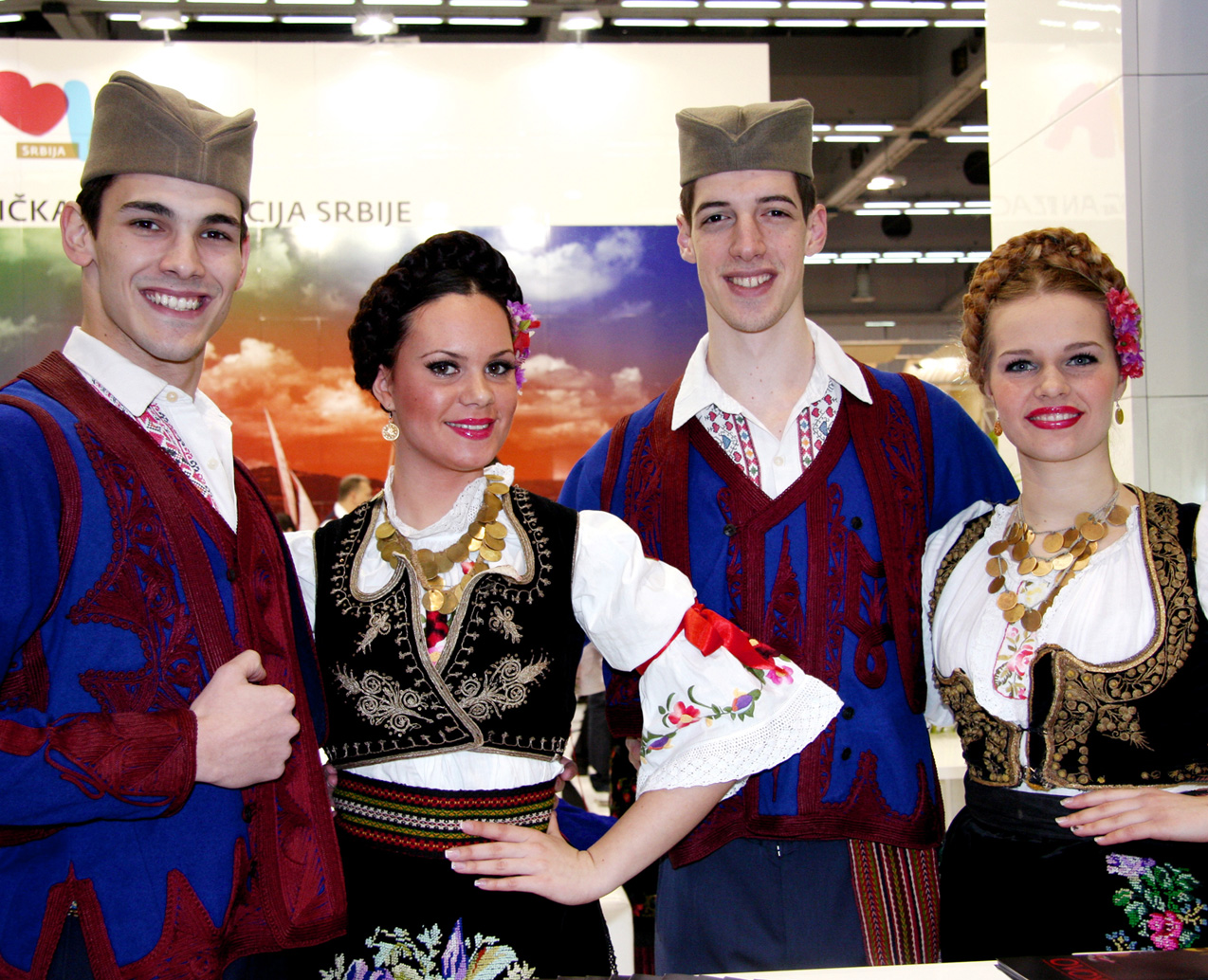

MDG-F spurs rural development in Serbia

Traditional costumes, dances and food were in the spotlight at Serbia’s recent International Tourism Fair, part of an MDG-F-funded effort to boost tourism in the country’s rural areas, where unemployment is high and nearly one in ten people live below the poverty line.
Some 4,000 visitors attended the fair, which included 900 exhibitors from 43 countries. At the Serbian stand, presented with MDG-F support, costumed dancers performed fast-stepping versions of the traditional Kolo (“wheel”) dances, and artisans demonstrated techniques for weaving prized wool rugs from the Pirot region. Local brandies, cheeses, smoked hams and sausages were on hand, and a musician performed on an instrument known as the kavala, a centuries-old musical tradition that has almost disappeared.
The Ambassador of Spain, Iñigo de Palacio España, whose government finances the MDG-F, was one of some 2,000 visitors to the stand, and emphasized the potential of rural Serbia in an address to guests and media.
The effort was aimed at encouraging sustainable tourism in Serbia’s rural areas to help boost incomes and stem emigration. Despite the country’s economic growth over the past eight years, Serbia’s rural populations still struggle: nearly 25% are unemployed and 9.6% live below the poverty line, twice as many as in urban areas.
The MDG-F-funded Joint UN Programme is assisting the Serbian government in diversifying the rural economy, while preserving environmental resources. The Programme, “Sustainable Tourism for Rural Development,” is being implemented by five UN agencies: FAO, UNDP, UNEP, UNICEF and UNWTO.
Tourism to Serbia has picked up in the past decade, after a precipitous fall in the 1990s, when the country was at war. From 2006 to 2007, tourism overall grew by more than 30%; the international trend towards rural tourism is especially promising for Serbia, which has a rich heritage of biological, geological and cultural diversity.
The Joint Programme aims to strengthen the capacities of rural tourism entrepreneurs, tourism organizations and NGOs; promote innovative development approaches through Local Action Groups and Tourism Governance Organizations; and encourage national and international partnerships between public, civil and national sectors. So far, the programme has trained over 250 rural tourism stakeholders in project development and management and has designed the draft National Master Plan for Rural Tourism Development.